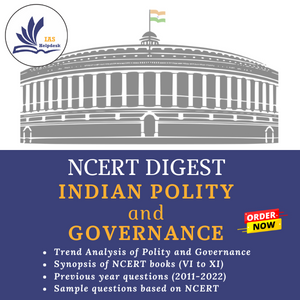Lok Sabha Ethics Committee
Description
Lok Sabha Ethics Committee: Learn about its role in examining the unethical conduct of Members and the procedure for lodging complaints.
The Lok Sabha Ethics Committee, comprising 15 nominated Members, plays a crucial role in addressing unethical conduct complaints against Members of Lok Sabha. The committee's one-year term involves examining such complaints, formulating a code of conduct, and suggesting amendments as necessary. The process for lodging complaints, as per Rule 233A, requires written complaints, supporting evidence, and a declaration of good faith. The committee's focus is on misconduct cases involving MPs, while more serious allegations go to the Privileges Committee, which safeguards Parliament's authority and dignity. Understanding these parliamentary bodies is essential for upholding ethical standards and preserving parliamentary integrity.
Lok Sabha Ethics Committee
Committee on Ethics (Lok Sabha) consists of 15
Members nominated by the Speaker. The term of the Committee is one year. Its
function is to examine every complaint relating to unethical conduct of a
Member of Lok Sabha referred to it by the Speaker and make such recommendations
as it may deem fit and formulate a code of conduct for Members and suggest
amendments or additions to the code of conduct from time to time.
Procedure for Ethics Complaints 233A
(1) Any person or member may make a complaint
relating to unethical conduct of a member of Lok Sabha. Provided that if a
complaint is made by any person, it shall be forwarded by a member.
(2) A
complaint shall be made in writing and addressed to the Speaker, who may refer
it to the Chairperson, Committee on Ethics, for examination, investigation and
report.
(3) The complainant must declare the identity
and submit supporting evidence, documentary or otherwise to substantiate the
allegations.
(4) It shall be incumbent upon any person who
has made the complaint to ensure that the complaint is not false, frivolous or
vexatious and is made in good faith. An affidavit to this effect shall
accompany the complaint. In case the complaint is made by a member, it shall be
incumbent upon such member to ensure that the complaint is not false, frivolous
or vexatious and is made in good faith. An affidavit shall not be required in
case the complaint is made by a member.
(5) Every complaint shall be couched in
respectful and temperate language.
(6) Every complaint shall be either in Hindi
or English. If any complaint in any other Indian language is made, it shall be
accompanied by a translation either in Hindi or English and signed by the
complainant.
(7) Every complaint made by any person shall
be countersigned by the member forwarding the complaint to the Speaker.
(8) The identity of the complainant would be
kept secret if a request to that effect is made by the complainant.
(9) A complaint based merely on
unsubstantiated media reports shall not be entertained.
(10) The Committee on Ethics shall not take up
any matter which is sub-judice and the decision of the Committee as to whether
such matter is or is not sub-judice shall for the purposes of these rules be
treated as final.
The Ethics
Committee and the Privileges Committee occasionally deal with similar cases.
More serious allegations typically go to the Privileges Committee.
The Privileges Committee
safeguards the “freedom, authority, and dignity of Parliament.” It can address
breaches of privilege by MPs or non-MPs that undermine the House’s authority
and dignity. The Ethics Committee primarily focuses on cases of misconduct
involving MPs.
How to Prepare for IAS | FAQs on UPSC | Up-to-date Current Affairs | Latest Videos & Updates | Article: Pontus plate

